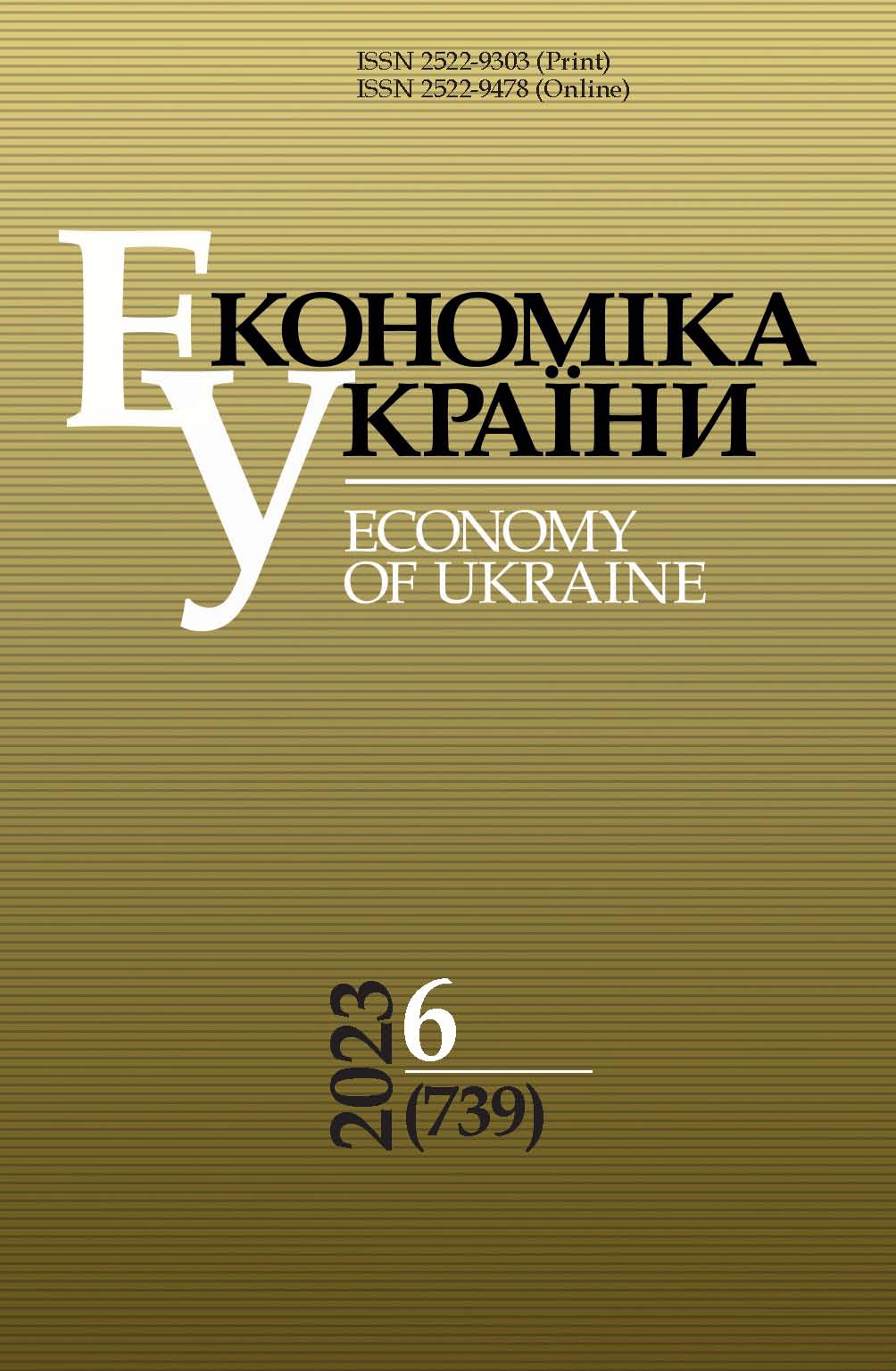ENSURING DIGITALIZATION OF THE SECTORS OF NATIONAL ECONOMY BY IT SPECIALISTS: PROBLEMS AND WAYS TO SOLVE THEM
DOI:
https://doi.org/10.15407/economyukr.2023.06.070Keywords:
digital transformation of business; basic and derivative information and communication technologies; sectors and types of economic activities of the national economy of Ukraine; IT specialists (staff); relevant statistical observations; Digital Economy and Society Index; ecosystem of IT education in UkraineAbstract
The relevance of the assessment of meeting the needs for digitalization in the sectors of national economy by relevant IT specialists through the implementation of basic information and communication technologies (ICT) therein (web, e-information exchange, sending of e-bills/invoices, social networks, cloud computing, "big data" analysis and artificial intelligence, e-commerce, industrial and service robots, 3D printing, ICT for environmental sustainability), as well as its conformity to existing EU practices on these issues (Digital Economy and Society Index, DESI), is studied, which is important in view of EU candidate status acquisition by Ukraine. The differences between the practices of the State Statistics Service of Ukraine and Eurostat regarding state statistical observations on the digitalization of the sectors of national economy, which are a tool for assessing the success of the state's digital, technological and educational policy, are highlighted, which is very important for Ukraine, whose economy is in a state of emergency as a result of large-scale aggression, and particularly for its post-war recovery on new technological track. It is established that since 2013, the State Statistics Service of Ukraine includes only a part of the economic sectors in the state statistical observation, their list is not updated, while the sectors that are not studied account for almost a third of the GDP. This situation must be urgently corrected.
The problems of the IT education ecosystem are studied. It is established that over three years of work in the conditions of the pandemic, it acquired a certain flexibility, a remote mode of training and certification was introduced, but this is not enough for long-term functioning in the emergency conditions of war. Disadvantages are the rigid study schedule, its long term, overloading of the core and elective parts of the curricula with a significant number of humanities subjects. It is proposed to combine them into integrated courses, to shorten the duration of undergraduate studies, to promote short-cycle programs (junior bachelor) for the rapid entry of graduates into the IT labor market, to ease the personnel conditions for licensing IT specialties since they belong to creative industries.
References
Rebuilding Ukraine: Principles and Policies. Yu. Gorodnichenko, I. Sologoub, B. Weder di Mauro (Eds.). Centre for economic policy research - СEPR PRESS, 2022. URL: cepr.org/system/files/2022-12/reconstruction%20book_Ukrainian_0.pdf [in Ukrainian].
Education of Ukraine under martial law. S. Shkarlet (Ed.). Kyiv, 2022. URL: iea.gov.ua/wp-content/uploads/2022/08/education-of-ukraine_2022.pdf [in Ukrainian].
Mishchenko V. Strategic management of digital transformation of the economy. Economy of Ukraine, 2022, No. 1, pp. 67-81 [in Ukrainian].
doi.org/10.15407/economyukr.2022.01.067
Anishchenko O. Non-formal adult education in the conditions of Russian-Ukrainian war: state, problems and prospects of development. Adult education: theory, experience, prospects, 2022, No. 21 (1), pp. 18-34 [in Ukrainian].
Downloads
Published
How to Cite
Issue
Section
License

This work is licensed under a Creative Commons Attribution-NonCommercial-NoDerivatives 4.0 International License.



